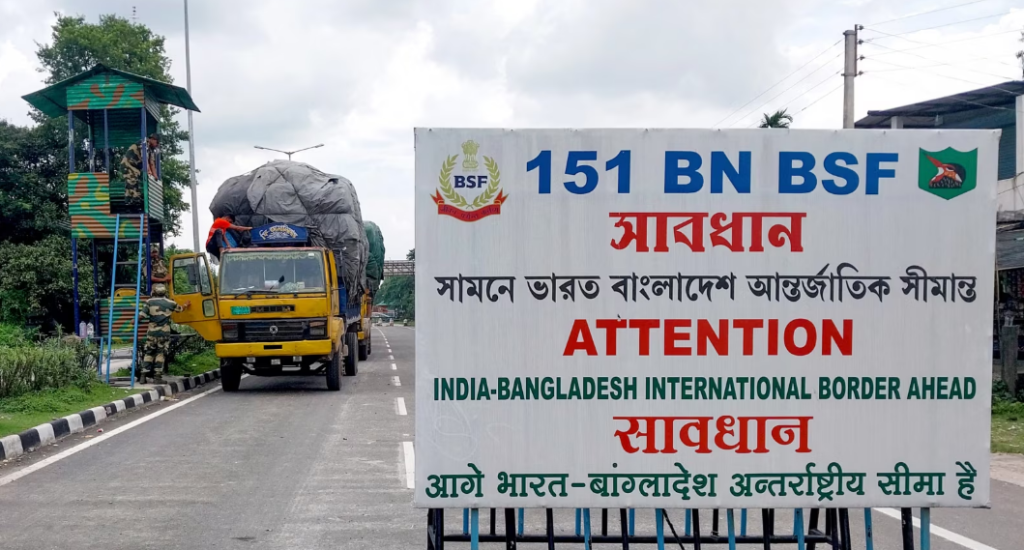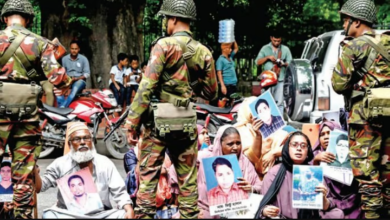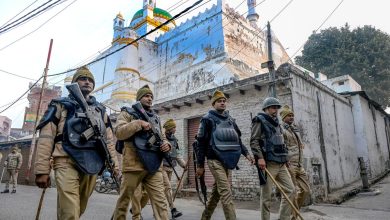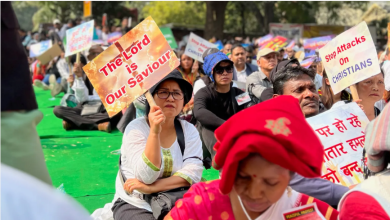 Ishfaqullah Shawl
Ishfaqullah Shawl
One can easily assess the situation prevailing in South Asia and conclude that India is next in line after Bangladesh. The Indian Modi-led Bharatiya Janata Party (BJP) regime has created conditions that could lead India quickly toward a Bangladesh-like situation. Whether it is Chhattisgarh or other states like Assam, Meghalaya, Tripura, Arunachal Pradesh, Mizoram, Manipur, Nagaland, or Jammu and Kashmir—where the Kashmiri nation is striving for their inalienable right to self-determination—or Punjab (where the Sikh Khalistan movement is gaining strength daily), the situation is becoming increasingly clear. The time may not be far when India faces a Bangladesh-like situation, as the people of these states have reached a saturation point. Besides Bangladesh, the internationally disputed and divided Jammu and Kashmir and the Khalistan movement will become a beacon for all Indian states, guiding people toward their ultimate goal of freeing themselves from a Hindu fanatic majority. There will be no respite for Hindus and Hindutva extremists to save India or even themselves from the people’s wrath.
The recent overthrow of Sheikh Hasina Wajid’s government in Bangladesh, following a powerful student-led movement, has sparked concerns across neighboring countries, particularly in India. One can easily observe the arrogance of Hasina, who labeled the protesting students as ‘Razakar,’ a term used for pro-Pakistan individuals in the 1970s when Indian-supported ‘Mukti Bahini’ forces helped Hasina’s father, Sheikh Mujibur Rahman, to disintegrate Pakistan into East Pakistan (now Bangladesh) and West Pakistan.
The Bengali students took to the streets with slogans such as ‘Ami ki tumi k’ ‘Razakar, Razakar’ and ‘Pakistan Zindabad,’ which was a significant blow not only to Hasina but also to her Indian facilitators and sponsors.
The student movement, which successfully ended Hasina’s 16-year rule, has been hailed by many as a rejection of undemocratic forces and a triumph of resilience by the Bangladeshi people.
Political analysts in India are drawing parallels between the situation in Bangladesh and the current political climate in India under the BJP regime of Narendra Modi. They note striking similarities between the politics of Indian Premier Modi’s BJP and Sheikh Hasina Wajid’s Awami League regime.
Political pundits argue that both political parties operate like organized gangster organizations under the guise of political entities, employing social violence, injustice, and vindictive tactics to achieve their goals.
Some open-minded critics assert that both the BJP and the Awami League have systematically undermined fundamental principles such as freedom of expression and press freedom in their respective countries. With the fall of the Awami League in Bangladesh, many Indian politicians are warning that a similar fate could befall the BJP, as discontent simmers among the Indian populace.
Former Indian foreign minister and Congress leader Salman Khurshid has voiced concerns that India may soon face a Bangladesh-like situation. Rashtriya Janata Dal MP Manoj Jha echoed these sentiments, highlighting the potential for anti-government movements to emerge, reminiscent of the Shaheen Bagh protests against the Citizenship Amendment Act (CAA) and the National Register of Citizens (NRC).
The experience in Bangladesh underscores the critical importance of democracy, free and fair elections, transparency, and the inclusion of people in the political system. Congress leader Shashi Tharoor remarked that these democratic principles are alarmingly absent under the Modi government. He emphasized the need for the government to reflect on its capitalist-driven policies and learn from the recent events in Bangladesh.
Earlier, Congress leader Rahul Gandhi had warned of the potential for widespread unrest in India, predicting riots and attacks on the Prime Minister if the current trajectory continues. As tensions rise, there is growing concern that India could experience a Bangladesh-like scenario, with significant political consequences for the ruling party.
Sheikh Hasina continued to hollow out the roots of Bangladesh by becoming a puppet in the hands of India.
Sheikh Hasina undermined the foundations of Bangladesh by serving as a pawn for Indian interests, fulfilling the Indian agenda. Modi and Sheikh Hasina’s regimes are tainted by atrocities against opponents, restrictions on freedom of expression, extrajudicial killings, and violations of minority rights.
Sheikh Hasina failed as Bangladesh’s Prime Minister and suppressed the voices of her own people by supporting Indian policies. In her quest for power, Hasina imprisoned her political opponents Khaleda Zia and Mirza Fakhrul Islam Alamgir, while political opponents in India were also targeted during Modi’s two tenures, a clear example being the arrest of Arvind Kejriwal before the Indian elections.
Sheikh Hasina formed the Rapid Action Battalion, through which more than 25,000 leaders were arrested and tortured, including hundreds of enforced disappearances. Modi promoted Hindutva ideology through RSS bullies.
According to Amnesty International, Sheikh Hasina arrested more than 56 journalists under the Digital Security Act (DSA) to silence critical voices, while Modi also targeted journalists with derogatory behavior, and 46 journalists from NewsClick faced false charges of terrorism. Internet services were suspended for more than a month this year to silence critical voices against him, while services were shut down over 800 times under Modi’s rule. Between 2009 and 2024, more than 600 enforced disappearances and over 3,000 extrajudicial killings were recorded. This year, Modi carried out more than 20 extrajudicial killings in neighboring countries, leading to global humiliation for India.
Amnesty also reported that more than 300 students were killed and over 3,000 tortured in July alone, while 255 incidents of violence against Indian Muslims were reported during Modi’s tenure. Modi has also curtailed Kashmir’s rights by revoking Article 370.
Sheikh Hasina’s ulterior motives and the Modi government’s fascist policies have stained their hands with the blood of their own people. The pit that Hasina Wajid was digging for decades during her tenure is one she ultimately fell into, seeking refuge with her Indian masters.








